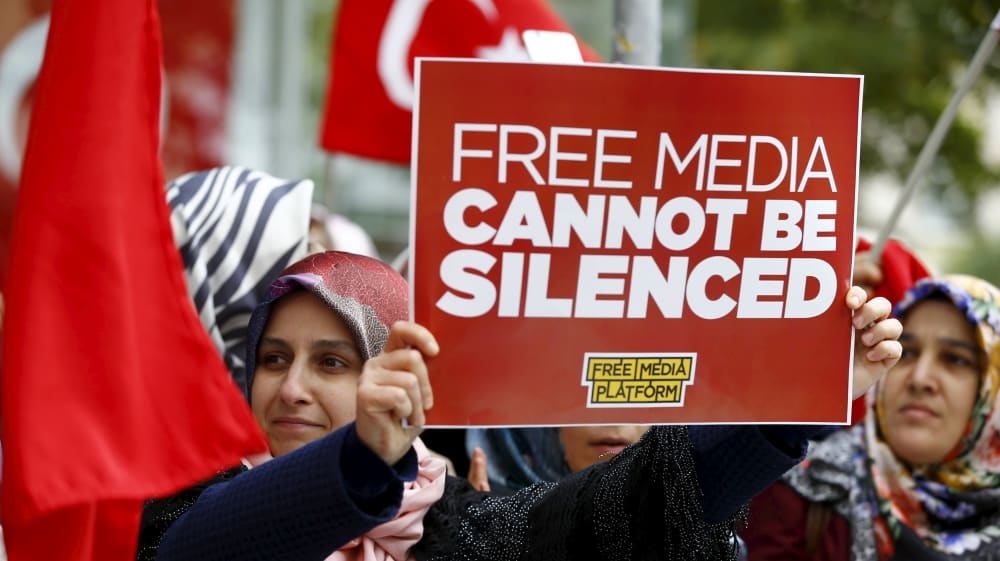
Answering the question proposed by MP Muazzez Orhan of the Peoples' Democratic Party (HDP) a whole 6 months later, Turkish Vice President Fuat Oktay said, "53 newspapers, 20 magazines, 16 television channels, 24 radio stations and 6 news agencies were closed within the scope of the Decree Law."
Orhan stated that he was asking about the situation of journalists who were attacked and injured while doing their job, arrested, detained, convicted, still in prison, and who were left unemployed.
“The conditions of journalism in these terms are the decline in freedom of the press. I asked the reasons why these websites were closed. These questions, which should be answered in a timely manner as required by the Constitution, were answered after 6 months, and the pressures made briefly were explained in numbers. This clearly shows the government's approach to freedom of the press," he said.
Turkey is one of the lowest ranked countries for media freedoms in the world, is the second most susceptible country surveyed on the European continent to fake news, has the most journalists jailed in the whole world, and 90% of media is government controlled.
In times of war or national crisis, Turkey has often stepped up its regular intimidation and prosecution of people for criticising government policies on social media, Human Rights Watch reported. The COVID-19 pandemic is no different: hundreds of citizens have been briefly detained then subjected to criminal investigation and prosecution for social media posts prosecutors deem “publicly threaten health in order to create fear and panic among the population.” Some get a spell in jail before trial on that charge.
However, the most mass persecution of journalists occurred after the coup attempt against Erdoğan.
